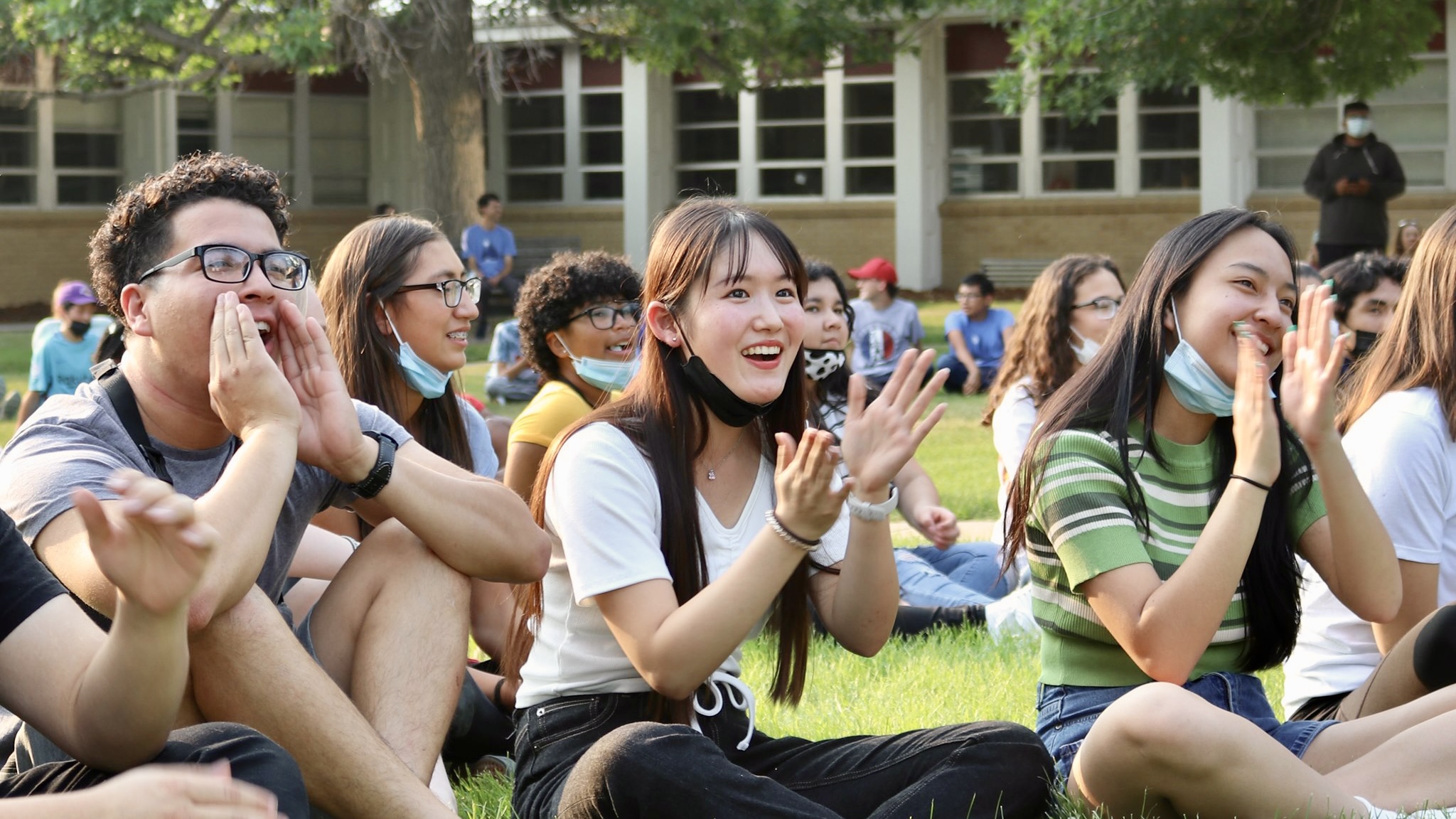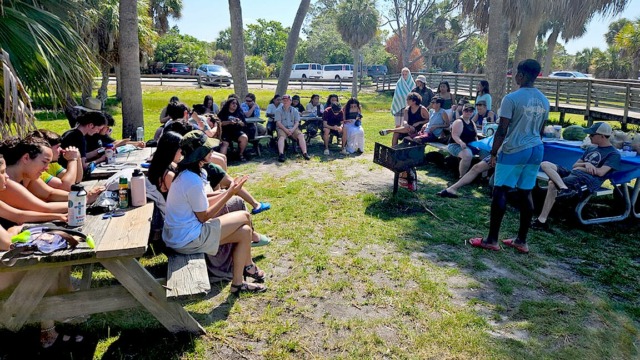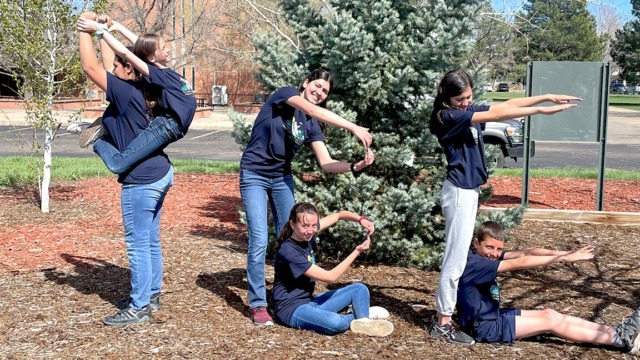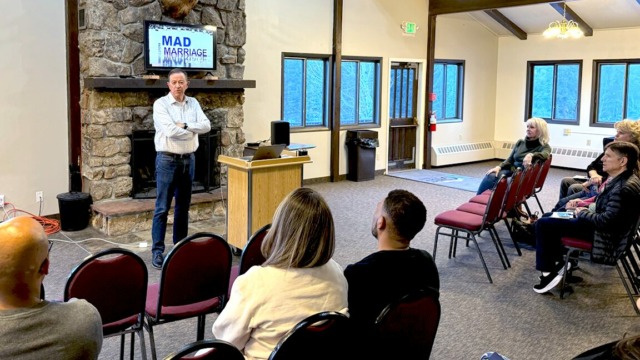We conclude our three-part series on RMC education with this entry. In this installment, we focus on our two academies–our boarding academy, Campion, and our day academy, Mile High. We asked Diane Harris, RMC education director, and Paul Negrete, associate director, how the academies are performing and about the future of the schools.
NN: Looking at our boarding academy Campion, how is the enrollment?
Diane Harris: Campion has grown.
Paul Negrete: The enrollment changed a little bit after January. They had a slight drop in enrollment, but I believe they were in the 150s and are now in the 140s. The trend, though, is continuing to increase.
NN: Campion Academy students have faced a very difficult year with the pandemic disrupting schedules and causing a brief disruption in normal activities and the tragic passing of Timothy Dien. What are some of the steps RMC education is taking to ensure the mental health of students is a priority?
Diane Harris: The immediate response after the loss of Timothy was to make sure that we were all working together to provide mental health support for them. There were local counselors who stepped up, and then the conference made a commitment that any child who wanted counseling from a licensed counselor in the area would have access. Currently, there are over ten students receiving weekly counseling to support them through the transitions and the difficulties of this year.
NN: Mental health awareness and well-being are important. Are there plans to provide mental health counselors to all students and teachers in the future?
Diane Harris: I’m excited that Mid-America Union applied for a grant that would provide services to our students, teachers, and their families through a licensed counselor, and the grant was approved. We are bringing in a licensed counselor to present to our teachers what will be provided for them next year.
NN: Our day academy Mile High has faced several challenges over the last few years. This year welcomed a new principal. How’s enrollment with all the challenges teachers and students went through the last few years.
Paul Negrete: There’s been an increase in enrollment. They weren’t sure what was going to happen from last year to this year, but God blessed. It was a steady increase throughout the year and they ended up higher than their targeted goal. They are at 217. For next year, they’re being conservative and showing a very small growth.
NN: RMC financially funds Campion Academy with it being the boarding academy. How does RMC financially support Mile High Academy?
Diane Harris: The conference supports their entire program; however, our subsidy per teacher costs primarily supports the elementary school (K-8 grade).
NN: Mile High Academy is facing a serious teacher shortage with multiple openings. Should the members be concerned with a high number of openings at one school?
Paul Negrete: If there was a problem, and people were jumping ship, we would be concerned. The openings were like a convergence of different circumstances that were personal life circumstances. A new baby and a family, and then some were for their families, and that transition was a part of what was happening. When we see this taking place all at one time, and we see that teachers are tearful and saying, I would love to stay, but God is calling me elsewhere. Then we also believe that God is opening that door because something else is about to happen.
If He’s opening the door for them to what looks like a void, it means that He’s opening the door because he’s bringing someone, and we’re pretty excited about that.
NN: There have been some financial challenges at Mile High Academy over the last several years, with two of the constituent churches decreasing their financial support of Mile High Academy. How is MHA fairing financially?
Diane Harris: I would say the last two years have shown the strongest finances Mile High has had in many years.
Paul Negrete: 2019 was the most challenging year, but the community pulled together. The administration did a very good job of putting the need out there and talking to the community. The last two years, there’s been no debt to the conference.
NN: Most of the academies are either heavily focused on sports or music as their extra- curricular emphasis. What is RMC doing to ensure we are reaching students who are interested in sports or music?
Diane Harris: I think the beauty of our staff is that they look at their students and asks themselves, “Are they artists, or can they build something?” Campion does a really good job in the fine arts and industrial arts program. MHA features their artist at their fundraisers by selling their art.
Paul Negrete: I think we are looking to build our schools, so one of the future plans is building self-navigation programs for students where they can communicate their interests and teachers can be responsive and support their unique journey. Every student’s passion can be supported at school. That’s really an important step forward because it breaks down the barrier of having silos of students who participate in certain activities and others who are alienated.
NN: What do you want members to know about the future of education in RMC?
Paul Negrete: That our teachers are serious professionals that want to grow in their profession. They believe in the ministry of Adventist education, and they believe in the ministry of bringing people to Christ. We see ourselves as an extension of the church, and we’re doing our job every day, and we’re serious about it, and we want to improve in it. We want to grow our church.
NN: Thank you Diane and Paul for an informative interview about RMC education.
RMCNews; photo supplied




